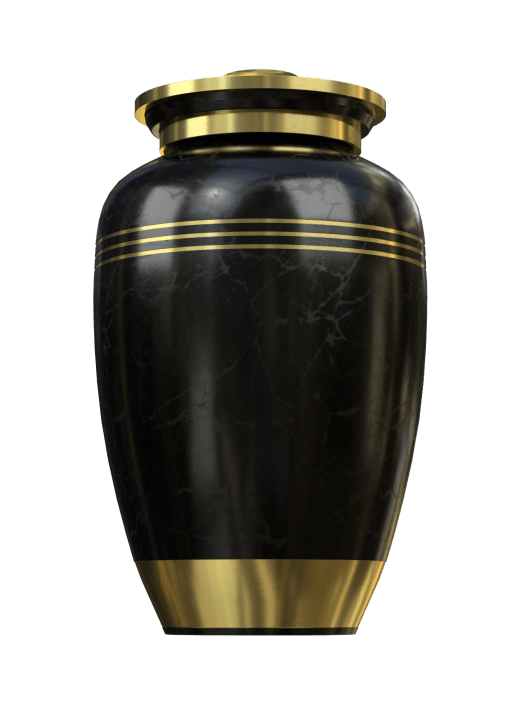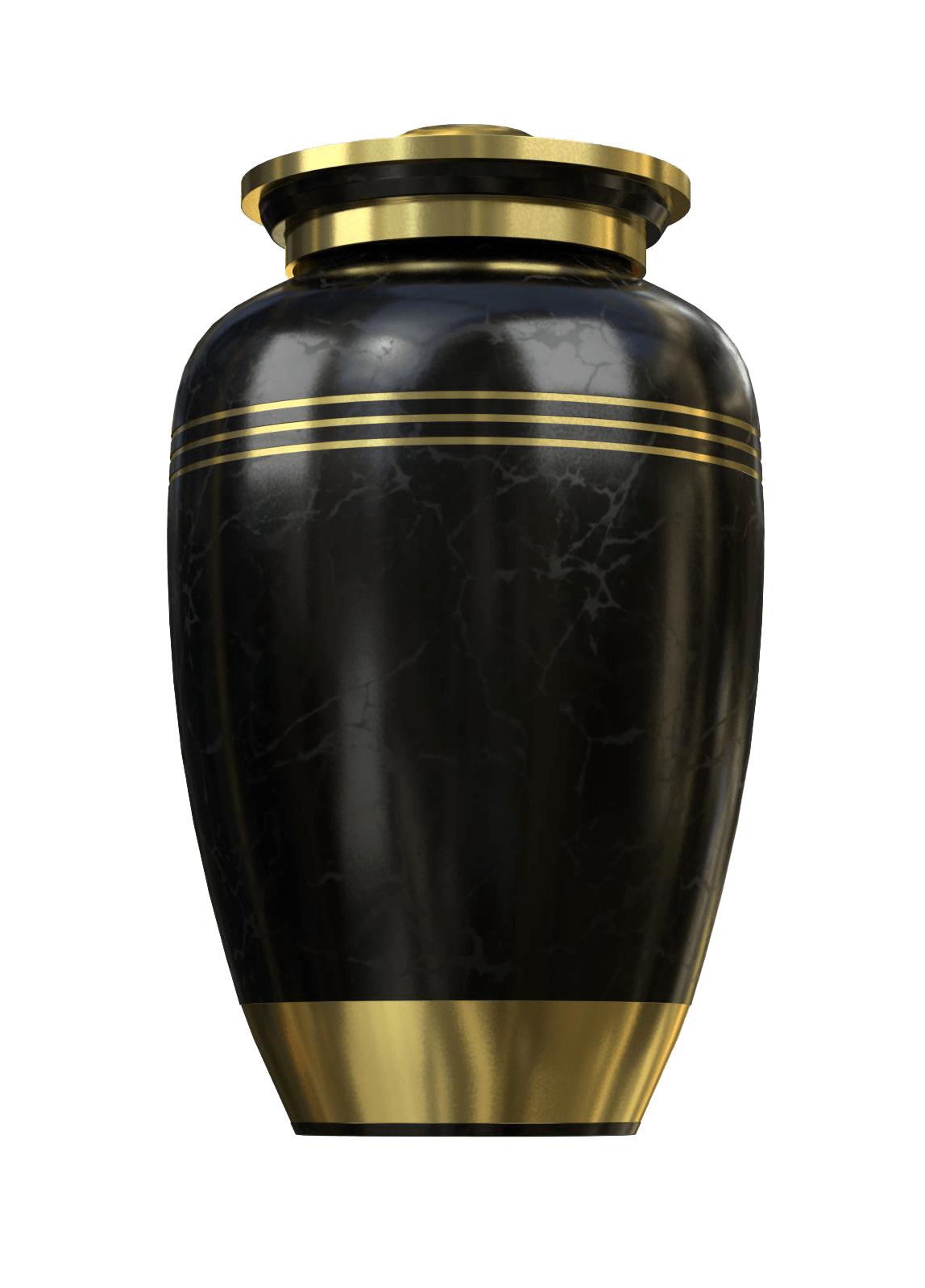
Twenty per cent of last year’s funerals in Britain were direct cremations – up from 14 per cent in 2020. Numbers are continuing to rise, fast, for this most affordable, clinical form of body disposal: cremations with no ceremony and no attendees. Daytime advertising campaigns put out by corporate firms such as Pure Cremation promote the peace of mind of sprightly 75-year-olds at their laptops, or in their conservatories with mugs of tea, who have just pre-paid for the direct cremation package. In the adverts they gush about the future family knees-up, with cupcakes and balloons, that their relatives will splash out on with the money saved by not paying for an attended funeral.
The helpful man on the phone at Pure Cremation, when I called the 0800 number to request a brochure, said he predicted that at this rate, within 20 years 50 per cent of the population will be choosing this option. Its direct cremation package costs £1,995, which he says is £2,300 cheaper than the average attended cremation or funeral.
You outsource and blind yourself to the entire process and get a nice little urn returned to you, as with a pet dog
It seems a lonely end for one’s mother or father, or indeed oneself – and actually quite expensive for what happens, which is basically waste disposal. Once the death certificate has been issued, your body is taken away in a van from wherever you died and driven to Pure Cremation’s crematorium in Andover, where family visiting and viewing are not permitted in the basic package (which 99 per cent of customers go for).
Dressed in whatever you happened to be wearing at the time of death, you’ll be put into a cheap coffin and refrigerated. On the company’s scheduled date, but with no specified timing, so your family won’t know when it’s happening, you’ll be taken straight to the incinerator. No words of farewell will be spoken. Your ashes will be delivered back to the family by courier within 14 days. Last year, Pure arranged 14,382 direct cremations: that’s 39 per day – and it is just one of many logistics firms offering this service.
Like many recent conventions, the direct cremation (nicknamed ‘burn and return’) was normalised during the pandemic lockdowns, when grievers found that they quite liked being limited to 12 attendees, or sometimes just five, so they were spared having to meet boring uninvited cousins and former colleagues of their deceased loved ones, and let off having to pay for their fizz and egg sandwiches. It was a short hop from 12 or five attendees to none at all and no ceremony. The dead person is dead so they won’t notice; they weren’t very religious anyway, and they never liked ‘fuss’ or ‘faff’. Direct cremations spare relatives from having anything to do with the physical reality of death: no need to decide on coffin linings or handles, or what to dress the deceased in. You outsource and blind yourself to the entire process and get a nice little urn returned to you, as with a pet dog.
But are we losing a vital aspect of the grieving process if we ditch the attended funeral ceremony and no longer accompany our beloveds to the very end – to the catafalque, the curtains or the grave: a human tradition that dates back at least 100,000 years? A recent survey of 261 mourners found ‘no difference in the “grief experience” between those organising a traditional funeral and those that choose not to’. High-street funeral directors, who are feeling threatened by the direct-cremation craze robbing them of their business, beg to differ.
‘We’ve had people coming in,’ says Mark Ingram, director at the family-run funeral directors Hunnaball in Essex, ‘who say, “We had a direct cremation, and now we really wish we hadn’t.”’ Too late, they’ve noticed they lost something precious by not being there to say a final ceremonial goodbye. If you look on Gransnet, you’ll see alarm spreading among the elderly, bombarded and creeped out by the onslaught of direct-cremation television ads. ‘I hope that when I die, I am not sent off without a family member present, as if I hadn’t existed: the saddest end,’ says one. Another: ‘I find it really bloody depressing to be asked to pay in advance for being roasted in an oven.’
You can see how – as with assisted dying – the elderly could be pressurised into going for this option by the death-averse, non-religious and hard-up young. ‘We’d far rather you left us the money than spending it on your own expensive funeral…’ When a cheap option is available, it’s always tempting to take it. ‘Funeral directors have had it too good for too long, in my opinion,’ said the man at Pure, showing his sales technique.
Hunnaball, which prides itself on the individual attention and respect it gives to every corpse it takes into its care, as well as to the grieving relatives whom it invites to visit and view the body in its chapel of rest, has had to start offering its own cheaper direct-cremation option in order to see off some of the ruthless undercutting by direct-cremation firms. ‘We market ours as local,’ says Ingram. ‘The body will go straight to the local crematorium, and will still be under the local funeral director.’ Which is a step up (humanity-wise) from the hundreds of miles that a corporate firm might cart a body to a centralised crematorium.

‘Everybody in the industry has tried to fight against them,’ Ingram says of the direct-cremation firms and their slick marketing, but it appears to be a losing battle. Will direct cremations spell the end for the old family-run high-street funeral directors, with their hearses and pin-striped pall-bearers, such as Leverton’s in north London which has been going since 1789, and CPJ Field, which has been independently owned for ten generations and making coffins since 1690?
Those in favour of direct cremations speak disparagingly of ‘cookie-cutter’ ceremonies in churches and crematoriums where you’re ‘marshalled’ into a room. ‘No one likes funerals,’ says one of the women in one of Pure’s advertisements. ‘So much money and fuss.’
Actually, some of us do ‘like funerals’, complete with the focal point of the coffin, and see it as a cathartic rite of passage. Just giving a party in memory of someone is no substitute. One vicar tells me that families frequently say to him, after he’s conducted an attended funeral: ‘I’m completely exhausted – but very glad we went through that.’








Comments